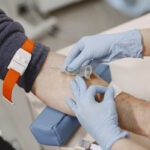What Preventive Healthcare steps should be taken by a woman?
BREAST HEALTH
Breast cancer is the most common cancer among women (other than skin cancer) and large number of women are likely to die from it. Proper screening is imperative, because with many cancers symptoms usually don’t appear until the disease is in advanced stages–and that is too late. Clinical breast exams should be a part of a yearly health exam for women between the ages of 20 and 39, and women must perform breast self-examinations, starting in their 20s.
Women should get any breast change promptly examined by a specialist. A vast majority of cancerous lumps are picked up by the patients themselves, if they are performing the self-exams religiously.
If you’re 40 or older, you should have a yearly mammogram. A mammogram is an x-ray of your breast tissue to detect breast lumps or suspicious changes that may be too small to be detected during a physical examination. If you’re at high risk for breast cancer, with a strong family history, it’s recommended that you discuss your family history with your doctor and start having mammograms earlier. The earlier breast cancer is detected, the greater a woman’s chance for survival. Remember, every woman is at risk for breast cancer, and the risk increases with age. But no woman has to die of breast cancer–a diagnosis does not have to be a death sentence.
GYNECOLOGICAL HEALTH
Annual Pap smears and pelvic exams should begin after a woman reaches 18, or when she becomes sexually active, whichever occurs first. A Pap smear is a test that examines cells collected from the cervix to screen for cervical cancer and other abnormalities at an early and treatable stage. Annual Pap smears are especially important during a woman’s reproductive years. Healthy reproductive organs can help prevent problems during pregnancy and childbirth.
An additional next step is to be screened for common sexually transmitted diseases (STDs), which can cause infertility, and birth defects. The Human Papilloma Virus (HPV) is considered to be a major cause of cervical cancer, which is related to a woman’s sexual behavior. Practicing proper sexual safety precautions, such as using condoms or practicing abstinence, are highly recommended.
Unfortunately, all too often women wait too long to get proper medical attention. Good health is all about power–power of prevention and understanding that your health is in your hands. Challenge yourself to make the right decisions.






Facebook Comments